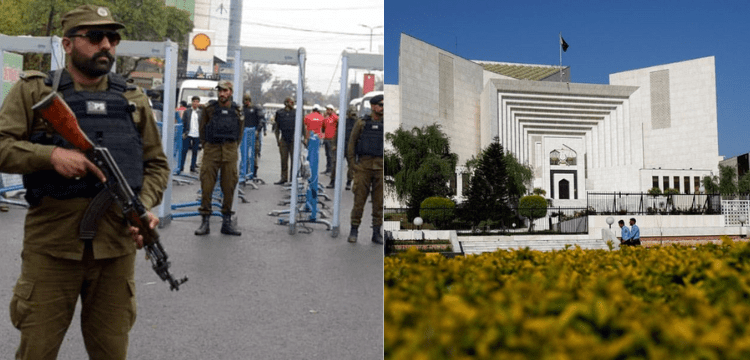[vc_row][vc_column][vc_column_text dp_text_size=”size-4″]ISLAMABAD: The Supreme Court on Thursday, hearing a case against the transfer and posting of police officers, noted political interference in Punjab police, stating that the department was “deliberately” deprived of training and authority, and emphasised the need to impart training on police to improve the criminal justice system.
The highest court denied Kamran Afzal’s request for restoration as the former chief secretary of Punjab.
The case was heard by a three-member bench presided over by Chief Justice of Pakistan (CJP) Umar Ata Bandial.
The involved Sindh and Punjab administrations presented a thorough report on the transfers and postings during the hearing.
The CJP stated that no inspector general has served out their full one-year tenure since 2018, as per the Punjab report.
He noted that the tenure of some IGs was only a month.
The top judge remarked that the tenure of IG was fixed for an effective leadership.
Punjab additional advocate general told the court that in 2017 the provincial cabinet had decided to change the police order.
However, he said, the IG could not give a briefing on the change in the police order.
The CJP asked whether political impediments were the reason for not having a briefing for the last six years.
He said that there was political interference in Punjab police and that the department was “deliberately” deprived of training and powers.
The top judge said that in a case, the court had to seek the assistance of (security) agencies for the recovery of girls who had been abducted for six years.
The police need training, he said.
Justice Athar Minallah remarked that the report submitted by Punjab did not mention the reasons for the removal of IGs.
He said the authority to make transfers lied with the executive, adding that they were accountable to people. If a transfer was made based on performance, he inquired as to whether anyone had been subject to retaliation.
The CJP stated that investigative officers lacked both resources and training, noting that police training was essential for the criminal justice system to be improved.]
The court denied a request for the restoration of the former Punjab chief secretary, stating that the case was “individual in nature” and unrelated to the police investigation.
Eventually, the Supreme Court postponed the case’s hearing until the final week of March.[/vc_column_text][/vc_column][/vc_row][vc_row][vc_column][vc_column_text]
[/vc_column_text][/vc_column][/vc_row]











